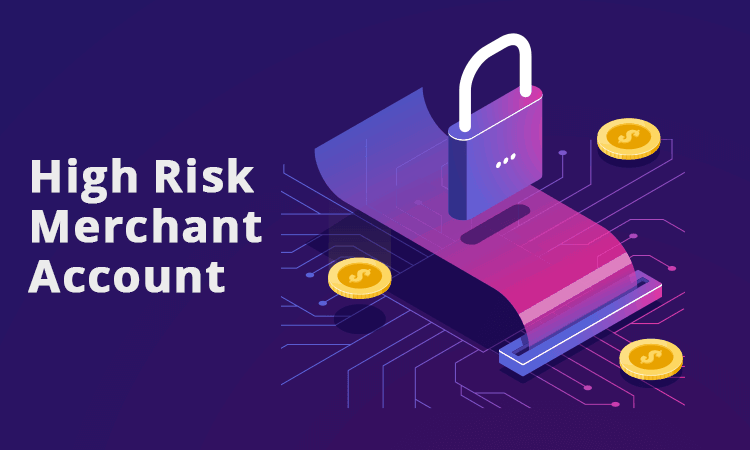
In today’s ever-evolving digital marketplace, not all businesses are treated equally when it comes to payment processing. Companies operating in industries considered to have a higher likelihood of chargebacks, fraud, or regulatory issues are often classified under high risk merchant accounts. These accounts serve a crucial role in ensuring that such businesses can continue to accept credit and debit card payments without interruption. Understanding what high risk merchant accounts are and why they matter can be the difference between a business thriving or failing in a competitive environment.
What Are High Risk Merchant Accounts?
High risk merchant accounts are specialized payment processing accounts for businesses that traditional banks and financial institutions classify as riskier than average. This risk can be due to a variety of factors including industry type, chargeback rates, history of fraud, or even geographical location. Common examples of businesses that fall under this category include online gaming, adult entertainment, CBD products, travel services, and cryptocurrency exchanges.
Banks and payment processors take a cautious approach with these industries because they often experience higher than average refund or dispute rates. By classifying these businesses as high risk, financial institutions can impose stricter requirements and higher fees to offset the potential for financial losses.
Why Businesses Need High Risk Merchant Accounts
Many businesses have no choice but to operate under high risk merchant accounts because of the nature of their industry. For such companies, having a dedicated high-risk processor is essential for several reasons:
-
Continued Operations
Without a payment processor willing to work with them, businesses would be unable to accept credit card payments, drastically limiting their customer base. -
Customized Fraud Protection
High risk merchant accounts often come with more robust fraud detection tools and security protocols to help minimize the risks associated with high chargeback volumes. -
Chargeback Management
These accounts typically include systems designed to monitor and manage chargebacks, helping businesses maintain compliance and avoid account suspension. -
Global Reach
Many high-risk payment processors support international transactions, enabling businesses to expand their operations globally without worrying about regional banking restrictions.
Key Features of High Risk Merchant Accounts
Businesses using high risk merchant accounts enjoy several features that are tailored to their needs, including:
-
Higher Processing Limits: Suitable for industries with high-ticket sales or monthly volumes.
-
Multiple Currency Support: Enables businesses to operate in international markets with ease.
-
Flexible Payment Gateways: Integration with eCommerce platforms and third-party tools.
-
Specialized Customer Support: Expert assistance in dealing with complex payment issues and chargebacks.
Though these benefits come at a cost, they are vital for the survival and growth of high-risk businesses in an increasingly digital world.
Challenges of High Risk Merchant Accounts
While necessary, high risk merchant accounts are not without challenges. Some of the most common issues include:
-
Higher Fees and Reserve Requirements
Merchants can expect to pay more in transaction fees, monthly charges, and rolling reserves that are held back as protection against potential chargebacks. -
Longer Approval Times
Due to the increased scrutiny, it often takes longer to get approved for a high risk merchant account compared to standard ones. -
Account Instability
Processors may freeze or terminate accounts if chargeback ratios exceed the acceptable threshold, leading to potential cash flow problems.
Understanding these challenges ahead of time can help businesses prepare and implement strategies to mitigate risks.
How to Secure a High Risk Merchant Account
To obtain a high risk merchant account, businesses should:
-
Prepare Strong Documentation
Provide business licenses, financial statements, and proof of a refund policy. -
Reduce Risk Factors
Show low chargeback ratios and a secure website with SSL certification and clear terms and conditions. -
Work with Specialized Providers
Choosing a provider that specializes in high risk merchant accounts increases the chance of approval and better service. -
Maintain Transparent Operations
Be honest about your business model and history during the application process to build trust with processors.
Industries Commonly Considered High Risk
Some industries are almost always placed into the high-risk category, such as:
-
Adult entertainment
-
CBD and vape products
-
Online gaming and betting
-
Travel agencies and ticket brokers
-
Subscription-based services
-
Telemarketing
-
Multi-level marketing
If your business falls into any of these, chances are you will need to apply for a high risk merchant account to ensure uninterrupted payment processing.
Conclusion
In the modern business world, high risk merchant accounts are not a luxury but a necessity for companies operating in complex or sensitive industries. These specialized accounts allow businesses to accept payments, manage fraud, and scale globally—even in the face of regulatory or operational challenges. While they come with additional costs and requirements, the security, flexibility, and essential services they offer are often worth the investment. For any business that falls into a high-risk category, securing a high risk merchant account is the first step toward sustainable and secure financial operations.

